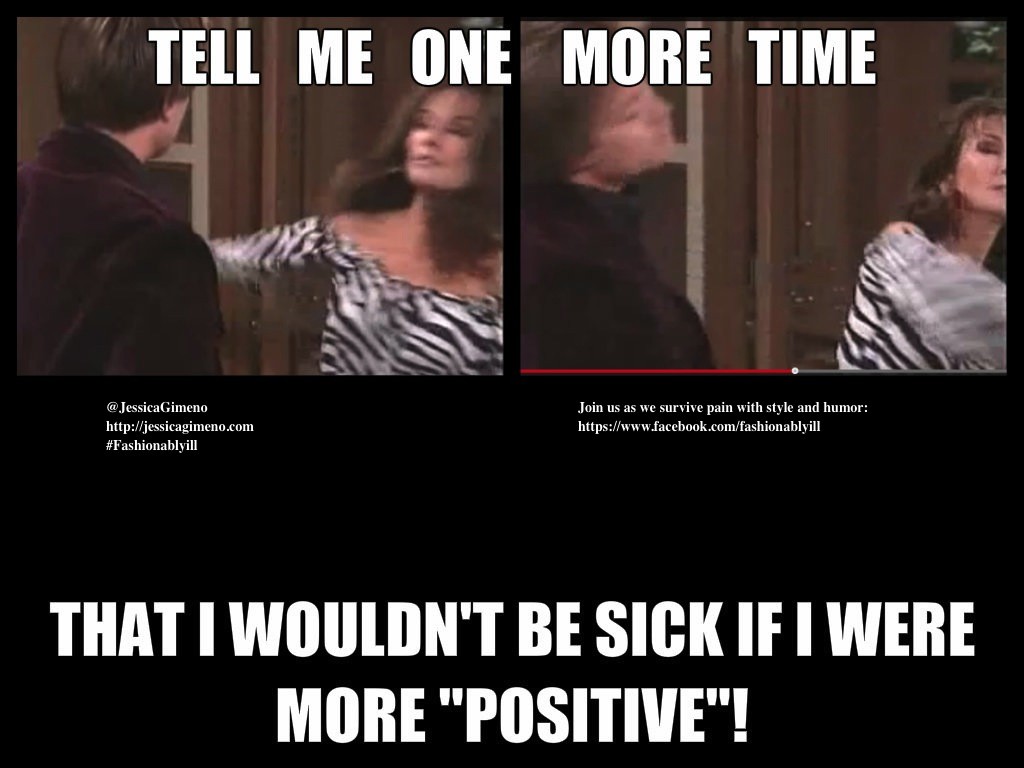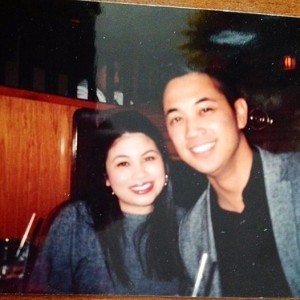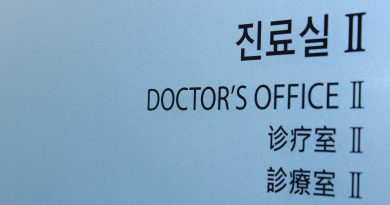Listening Speaks Volumes
One of the most popular things chronically ill people hear is, “If you put your faith in Christ, you wouldn’t be sick.” Or, “If you prayed harder, God would heal you.” No one in pain, religious or not, wants to be preached to.  Another message sick people don’t like hearing is, “If you were more positive, you wouldn’t be sick.” (This is not an article on what not to say to sick people—see my previous post, “8 Things Not to Say to a Sick Person.”) However, I was inspired to write because of two powerful, very different conversations I had last week.
Another message sick people don’t like hearing is, “If you were more positive, you wouldn’t be sick.” (This is not an article on what not to say to sick people—see my previous post, “8 Things Not to Say to a Sick Person.”) However, I was inspired to write because of two powerful, very different conversations I had last week.
The First Conversation
I called my friend because it was her birthday. I had two goals with that phone call: to wish my friend a happy birthday and to ask her how she’s doing. I’m a big believer in being authentic. As someone who was diagnosed bipolar II at the age of 18 after a friend’s suicide, “how are you” is not a greeting for me like “hello” or “good evening.” I genuinely care about the answer when I ask a friend how she is doing. Similarly, when a friend asks me how I’m doing, I tell the truth. Anyway, after I listened to my friend update me on her life, she asked me how I was doing. I responded by telling her I was falsely accused of something, was having relationship problems with a new friend, and that I’ve been stuck in insurance purgatory between the Affordable Care Act and Medicaid. Earlier that day the hospital called to tell me that if I couldn’t pay a $350 deposit at my forthcoming neurological visit for my autoimmune disease, they would cancel my appointment. My friend responded by saying, “You sound bitter. From what I know of you, you’re always so positive.” This was followed by a message about trusting in God more. I was hurt. I’ve often blogged about the power of gratitude and I know I wouldn’t have survived my buffet of illnesses without my faith. But I also believe that everyone is allowed to have “bad days.” I tried to gently explain this. I also said that if she had four illnesses (bipolar, Myasthenia Gravis, polycystic ovarian syndrome, asthma) and was being harangued by bill collectors and had been falsely accused of something at work, she would probably not be sunshine and rainbows everyday.
Why We Cling to Platitudes
Being positive is important. But so is listening when a friend is in trouble—I mean really listening, not preaching. People, who sometimes mean well, preach platitudes (like saying “time heals all wounds” when someone has suffered a traumatic event) because it’s hard to accept that bad things happen to good people. Understanding that we are not in complete control of our destiny and that anyone can get sick is frightening.
My nephew, Mikko, has mastered the art of listening. He’s only six but when he sees me tired or in pain, he puts his hand on my arm and sits with me in silence. Occasionally, he’ll try to tell jokes to make me laugh. He’s been my guardian angel/self-appointed doctor since he was two-years old.
When In Doubt….

Meet Other Warriors on Facebook
Is there a time when a friend helped you get through suffering? How? Join the conversation on Facebook. “Like” our page at: https://www.facebook.com/fashionablyill
–Your Stylist, Jessica Gimeno




